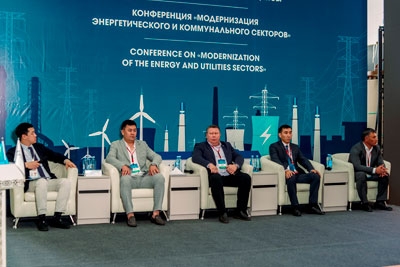As part of the implementation of the National Project "Modernization of the Energy and Utility Sectors," a republican conference was held in Shymkent with the participation of government officials, industry representatives, and domestic manufacturers. The event was organized by the Association of Electromechanical Engineers of Kazakhstan. The main goal of the conference was to address the pressing issues of worn-out infrastructure and to create conditions for sustainable future development.
The event was held at the Asia Trafo plant, the largest manufacturer of transformers and shunt reactors in Central Asia, and part of the Kazakhstani Alageum Electric Group. This industrial holding has been restoring bankrupt factories, building new facilities, and introducing advanced technologies into production for 27 years.
“The potential of Kazakhstani enterprises is significant. In practice, domestic equipment proves more resilient to Kazakhstan's climatic conditions and infrastructure quality. Another key advantage is warranty and technical support — something no foreign supplier currently provides in Kazakhstan. Local manufacturers, on the other hand, do. Moreover, there is an important social aspect — job creation, tax revenue, and increased investment appeal,” emphasized Galym Bulatov, Managing Director of the Association of Electromechanical Engineers.
Local manufacturers noted that they already perform repairs on imported equipment that often fails early in its service life, reinforcing the importance of supporting domestic industry.
“We urge consideration of purchasing energy-efficient transformers. This is a global trend, and Kazakhstan must keep pace,” said Dauirbek Ateev, Technical Director of Asia Trafo.
Aydin Rakhymzhan, representative of the Ministry of Industry and Construction of the Republic of Kazakhstan, confirmed that the government is actively working to boost domestic production and establish new enterprises.
“This is not just about economics — it is about the country’s energy security. Reliable infrastructure provides warmth and light to the homes of Kazakhstanis,” commented a ministry representative.
During the session dedicated to implementation mechanisms, Makka Shingaziyeva, Deputy Chairperson of the Board of the Kazakhstan Center for Modernization and Development of Utilities, noted that the National Project is planned with a long-term perspective:
“We emphasize: this will be a phased project. For now, we focus on the first five years, with future steps depending on outcomes and regional needs.”
Aliya Murzagalieva, Managing Director of the Baiterek National Holding, presented the project’s financing mechanisms, which include the company’s own funds, budgetary loans, charter capital contributions from local authorities or social-entrepreneurial corporations, loans from international financial organizations and domestic institutions, and the issuance of bonds to be purchased by a financial operator in accordance with national legislation. She noted that modernization will improve the country’s economic and investment attractiveness.
However, domestic producers expressed concern that many decisions are still made hastily and that full responsibility for project execution is handed over to EPC contractors. Talgat Alpyssbayev, a representative of Karlskrona LC AB, compared this with international experience:
“Abroad, we discuss projects that will be implemented 30–40 years in advance. Just the design stage takes three years. Long-term planning determines quality. But when everything is decided at the last moment, the risks are much higher.”
The event was attended by local manufacturers including Alageum Electric, Ust-Kamenogorsk Capacitor Plant, Nero Group, and Karlskrona LC AB. According to the Ministry, the large-scale modernization effort will continue until 2029. As a result, wear and tear of key infrastructure is expected to be significantly reduced. The conference in Shymkent became not only a platform for discussing pressing challenges but also an important step in redefining the role of local industry in securing Kazakhstan’s energy independence.


